Crop burning is a widespread practice among farmers, particularly in agricultural regions of Southeast Asia. Despite the well-known negative impacts on air quality and soil health, many farmers continue to burn crop residues. This article delves into the reasons behind crop burning and how Bhumi’s initiatives offer sustainable alternatives.
Table of Contents
Why Farmers Resort to Crop Burning
Cost and Time Efficiency
One of the primary reasons farmers turn to crop burning is that it is a quick and cost-effective way to clear fields.
- Quick Clearance: Crop burning allows farmers to rapidly clear their fields of crop residues, making way for the next planting season. This is particularly important in regions with tight cropping schedules, where any delay can significantly impact the planting and harvesting cycles.
- Low Cost: Burning crop residues requires minimal financial investment compared to other methods of residue management, such as mechanical removal or composting. For small-scale farmers with limited resources, burning is often seen as the most viable option.
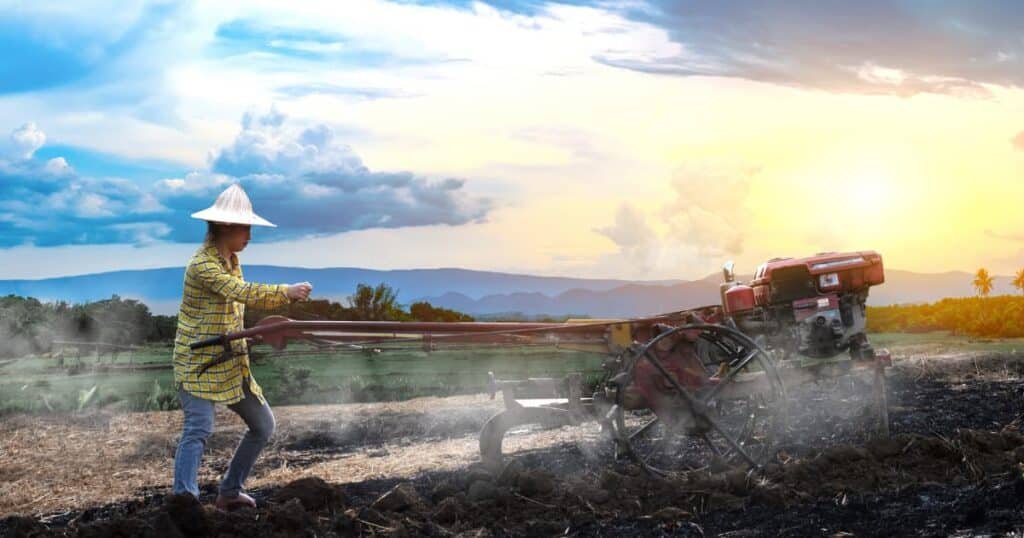
Lack of Awareness and Education
Many farmers may not be fully aware of the long-term negative impacts of crop burning on soil health and the environment.
- Limited Knowledge: In some rural areas, farmers may have limited access to information about sustainable farming practices and the detrimental effects of crop burning. According to a report by the International Rice Research Institute (IRRI), many farmers are not aware of the soil degradation and air pollution caused by burning crop residues.
- Traditional Practices: Crop burning has been practised for generations in some agricultural communities, making it a deeply ingrained tradition. Changing these long-standing practices requires targeted education and outreach efforts.
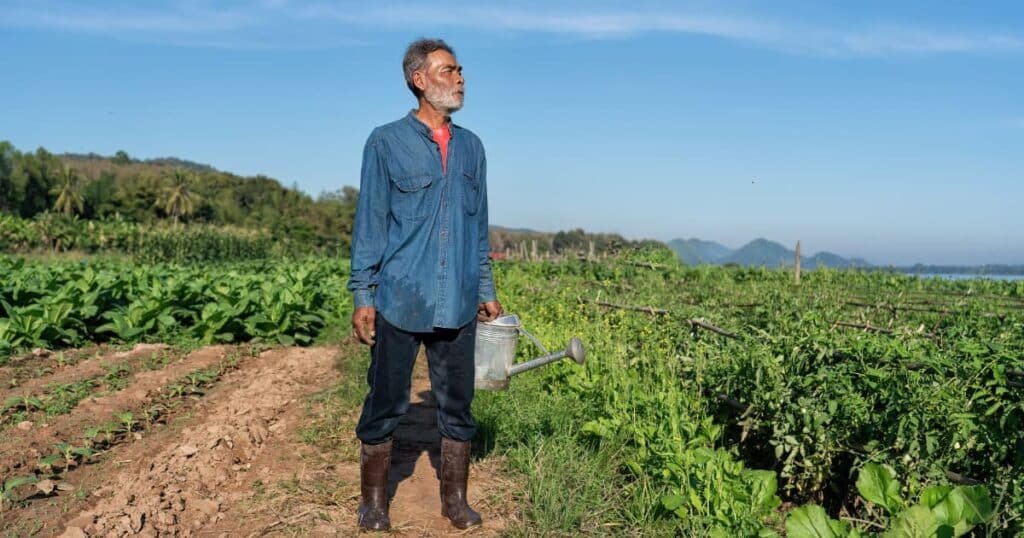
Insufficient Resources and Infrastructure
Farmers often lack the necessary resources and infrastructure to implement alternative residue management practices.
- Limited Access to Machinery: Mechanical alternatives to crop burning, such as using mulchers or shredders, require access to machinery that many small-scale farmers cannot afford. The Food and Agriculture Organization (FAO) highlights that access to modern agricultural equipment is a significant barrier for many farmers.
- Inadequate Support Systems: In regions where agricultural support services are lacking, farmers may not have access to the technical assistance and financial support needed to adopt alternative practices. This can include everything from subsidies for equipment to training in sustainable farming methods.
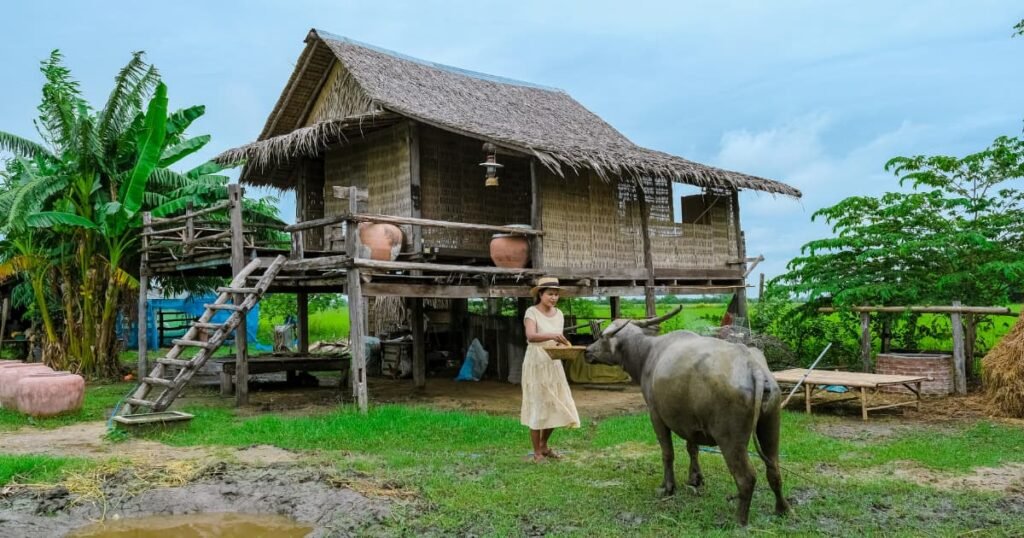
Bhumi’s Initiatives to Combat Crop Burning
Buying Crop Waste to Prevent Burning
Bhumi addresses the issue of crop burning by purchasing crop residues from farmers, providing them with an alternative source of income.
- Additional Income: By buying crop waste, Bhumi provides farmers with a financial incentive to refrain from burning. This additional income supports their livelihoods and encourages them to adopt more sustainable practices.
- Preventing Air Pollution: Purchasing crop waste helps prevent the release of harmful pollutants into the air, improving air quality and reducing the health risks associated with crop burning.
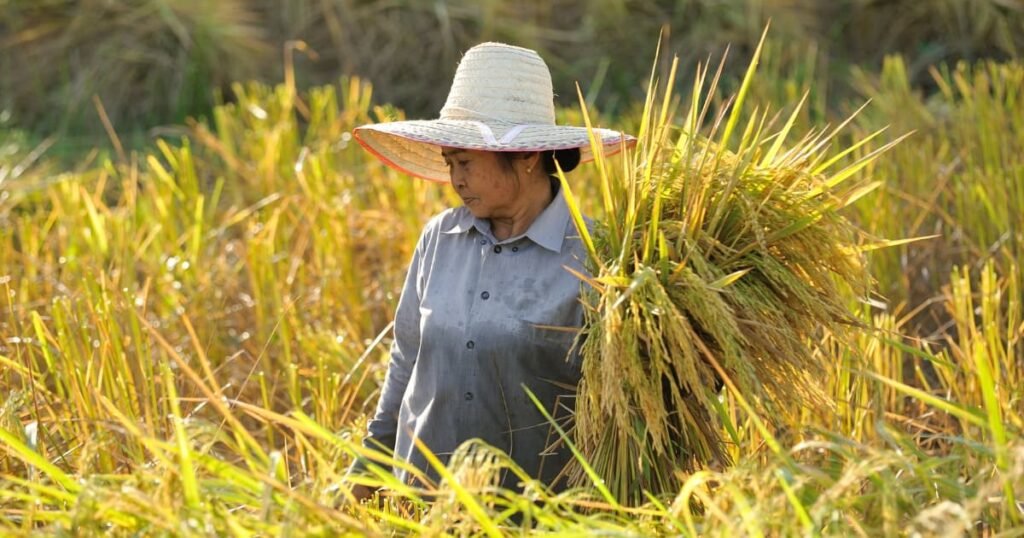
Transforming Crop Waste into Biodegradable Packaging
Bhumi addresses the issue of crop burning by purchasing crop residues from farmers, providing them with an alternative source of income.
- Additional Income: By buying crop waste, Bhumi provides farmers with a financial incentive to refrain from burning. This additional income supports their livelihoods and encourages them to adopt more sustainable practices.
- Preventing Air Pollution: Purchasing crop waste helps prevent the release of harmful pollutants into the air, improving air quality and reducing the health risks associated with crop burning.

Improving Soil Health
Repeated crop burning depletes soil nutrients and organic matter, leading to poor soil health. Bhumi provides education and resources to help farmers improve soil health.
- Soil Degradation from Burning: Repeated burning of crop residues leads to the loss of essential soil nutrients and organic matter, reducing soil fertility. A study by the Journal of Environmental Management highlights how crop burning can cause significant soil degradation over time.
- Sustainable Soil Management: Bhumi teaches farmers sustainable soil management practices such as composting and the use of organic fertilizers. These practices help restore soil health, improve crop yields, and reduce the need for chemical fertilizers.
- Water Retention: Healthy soil with high organic matter content has better water retention capabilities, reducing the risk of crop failure due to drought or flooding. Improved soil structure helps in maintaining moisture levels, which is crucial for crop growth.

Providing Education and Training
Bhumi conducts educational workshops and training sessions to equip farmers with the knowledge and skills needed to adopt sustainable farming practices.
- Sustainable Farming Practices: Workshops focus on teaching techniques such as organic farming, crop rotation, and integrated pest management. These practices help improve soil health and increase crop yields.
- Financial Literacy: Bhumi provides training on financial management, helping farmers understand budgeting, savings, and investment strategies. This knowledge empowers farmers to make informed financial decisions and improve their economic stability.

Improving Market Access
Bhumi works to improve market access for farmers by connecting them with better opportunities to sell their produce at fair prices.
- Market Linkages: Bhumi helps farmers establish direct linkages with buyers, reducing their reliance on middlemen and ensuring they receive fair prices for their produce.
- Infrastructure Development: Bhumi collaborates with local governments and organizations to improve transportation and market infrastructure, making it easier for farmers to access profitable markets.
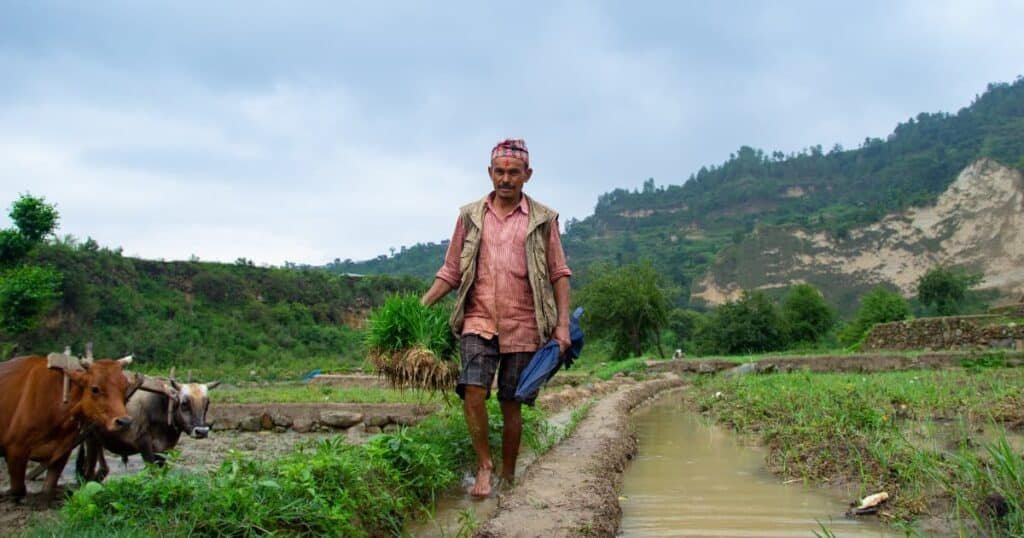
Conclusion
Farmers turn to crop burning due to its cost and time efficiency, lack of awareness about sustainable alternatives, and insufficient resources and infrastructure.
Bhumi’s initiatives address these challenges by providing financial incentives, sustainable alternatives, education, and improved market access. By supporting these efforts, we can help reduce crop burning and promote sustainable agricultural practices.
Join Bhumi in supporting sustainable farming practices and reducing crop burning. Learn more about our initiatives and how you can get involved by visiting our website.




